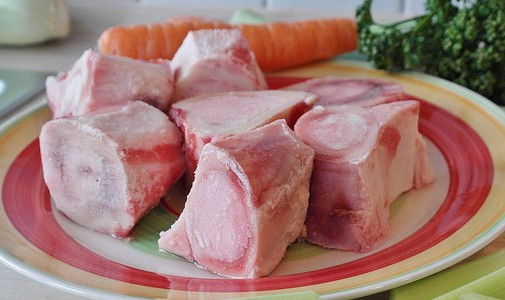Bone broth was and still is a part and parcel of many cultures around the world. People always relate to grandma’s favorite chicken soup especially when you come down with some kind of sickness like cold symptoms.
Why so people in every country are so crazy about this liquid? It turns out this very liquid stuff is not only comforting and delicious but also has powerful medicinal benefits for our guts as well as many other nutrients for our overall health.
Even though bone broth is nothing new to the world but recently it has become one of those trendy foods everyone is talking about from 2013 -2015 in the US. When you look at all the social media there is so much promotion of this substance that its consumption has skyrocketed. You can find bone broth pretty much anywhere now.
What is a bone broth?

Bone broth is a nutritious delicious drink that can be made from bone for animals. Cooking them in low heat for hours and hours until all nutrients are removed from the bones. This is the ideal method to prepare bone broth to get the best results. The process extracts collagen, gelatin, amino acids, minerals, electrolytes, and other beneficial compounds from the bones and tissues, creating a rich and flavorful broth that can nourish your body and soul.
What nutrient does bone broth contain?
Here are the most important ones
- Protein- This is a nutrient that is essential for building muscles, bones, skin, and blood. Protein gives the structure of our entire body and gives stretchiness and beauty to our skin, joints, and bones.
- Amino acids- Every cell in our body is a build-up of amino acids which is an essential element, especially for gut health as this article is focused on this topic. Glutamine is one of the major amino acids that protect the lining of the gastrointestinal tract. It also prevents inflammation from it.
- Minerals – Bone broth is a great source of minerals. The major ones are calcium and phosphorous but also have some trace minerals such as magnesium, sodium, potassium, and sulfur
- Collagen- A protein that is gluey, and stretchy that keeps our body together. It is found in joints, ligaments, tendons, cartilage, and skin, and the consequence of not having it in our body are many such as fractures, stiffness, wrinkly,
- Gelatin – When bones are cooked for very long collagen turns into gelatin which is a protein. It is very thick and jelly-like.
How Bone Broth Heals Your Gut Lining
One important function of your gut is that it acts as a barrier between your internal environment and the external world. Your gut lining is composed of a single layer of cells that are tight junctions, forming a protective seal that prevents harmful substances from entering your bloodstream.
However, this seal can become damaged when the tight junctions become loose due to various factors, such as stress, toxins, medications, infections, or poor diet. When this happens, undigested food particles, bacteria, toxins, and other foreign invaders can sip through into your bloodstream, causing inflammation, allergies, autoimmune reactions, and other chronic diseases.
This condition is known as leaky gut syndrome, and it can affect not only your gut health but also your overall health and well-being. I have written another article about leaky gut so you can click the hyperlink above to learn more.
Fortunately, bone broth can help heal your gut lining and restore its integrity. Bone broth contains collagen and gelatin, the main components of your gut lining. Collagen and gelatin can help repair the damage caused by leaky gut syndrome, as well as strengthen and tighten the junctions between your gut cells.
Bone broth also contains amino acids such as glutamine, glycine, and proline, which are essential for the synthesis and maintenance of collagen and other tissues in your gut. These amino acids can also help reduce inflammation, modulate immune responses, and support cellular regeneration in your gut.
Does Bone Broth Help with Inflammation?
Inflammation is a natural and necessary response of your immune system to fight infections, injuries, or foreign invaders. However, when inflammation becomes chronic or excessive, it can cause more harm than good to your body.
Chronic inflammation can damage your tissues and organs, disrupt your hormonal balance, impair your cognitive function, and increase your risk of various diseases such as diabetes, heart disease, cancer, arthritis, depression, and more.
One of the main causes of chronic inflammation is an imbalance in your gut microbiome. Your gut microbiome is the collection of trillions of microorganisms that live in your digestive tract. These microorganisms play a vital role in digesting food, producing vitamins and hormones, regulating metabolism, modulating immunity, and influencing mood and behavior.
However, when your gut microbiome is disrupted by factors such as antibiotics, stress, poor diet, or infections, it can lead to an overgrowth of harmful bacteria or yeast that produce toxins and inflammatory substances. These substances can leak into your bloodstream through a leaky gut lining and trigger systemic inflammation throughout your body.
Bone broth can help reduce inflammation by restoring balance to your gut microbiome. It contains beneficial bacteria that can help replenish the good bacteria in your gut and can remove the bad ones. Anti-inflammatory compounds such as glucosamine, chondroitin sulfate, hyaluronic acid, and butyrate are found in bone broth which can help lower the levels of cytokines, histamine, and other inflammatory markers in your gut and body.
How Bone Broth Supports Digestion
Another important function of your gut is to digest food and absorb nutrients essential for your energy, growth, and repair. However, many people suffer from digestive issues such as bloating, gas, constipation, diarrhea, acid reflux, or irritable bowel syndrome (IBS), which can affect their quality of life and lead to nutrient deficiencies and other health problems.
This golden soup can help support digestion by providing nutrients and enzymes that break down food and enhance nutrient absorption. Minerals in the bone broth such as calcium, magnesium, phosphorus, potassium, and sodium, help balance gut pH and create an optimal environment for digestion. Also, bone broth has electrolytes such as sodium, potassium, and chloride that regulate intestinal motility and prevent dehydration and electrolyte imbalance that can cause constipation or diarrhea
Some enzymes such as protease, lipase, and amylase are in bone broth. These enzymes digest proteins, fats, and carbohydrates in the food. They also help prevent food intolerances or sensitivities that can cause digestive distress.
By consuming bone broth regularly, you can help support digestion and improve your gut function and health.
How Bone Broth Boosts Your Immunity
Your gut is not only responsible for digestion but also immunity. About 70% of your immune system is located in your gut. Your gut contains lymphoid tissue that produces antibodies and immune cells that fight infections and protect you from pathogens. Your gut also contains beneficial bacteria that help modulate your immune system and prevent overreactions or autoimmune diseases.
Bone broth can help boost your immunity by providing nutrients and bacteria that can support your gut immunity. Bone broth contains vitamins such as A, C, D, and K, which are essential for immune function and regulation. Bone broth also contains zinc, iron, selenium, and copper, which are important for immune cell production and activity.
Bone broth also contains beneficial bacteria that can help balance your gut microbiome and enhance your immune system. These bacteria can help prevent infections by competing with harmful bacteria or yeast for space and resources in your gut. They can also help
Does Bone Broth Have Side Effects?
Yes, there are some downsides to consuming this golden drink that has taken the world by storm in recent years. A 2013 study tested the level of lead in three different parts of the chicken.
The study found a significant amount more lead in the tap water than in the broth made from skin, bones, and cartilage. As a result of this, the researchers suggested for healthcare providers make this discovery into consideration when advising their clients
Another side effect of histamine some individuals might have digestive issues such as gas, constipation, bloating, and stomach pain after the consumption of bone broth.
Due to high protein content, this might trigger allergies that lead to gut inflammation. Depending on the individual this might be a severe reaction or mild. it is advisable to consult with your doctor before drinking bone broth.
Most of these side effects are rare and may depend on the frequency of taking the broth and the quality of it. Make sure to choose organic, grass-fed bone broth and a brand you can trust to ensure the safety of your well-being.
Conclusion
In conclusion, bone broth is a nutritional powerhouse that offers numerous benefits for gut health. Its collagen, gelatin, and amino acid content help repair and maintain the gut lining while boosting the immune system. By regularly consuming bone broth, you can improve digestion, enhance nutrient absorption, and support overall well-being. Embrace the power of bone broth today and experience its transformative effects on your gut health.
Remember, It’s always better to prepare your own organic bone broth using grass-fed bones to get the highest quality bone broth to ensure maximum benefits.
By consuming bone broth regularly, you can help support digestion and improve your gut function and health.
References
- Stimulation of gastric acid secreted by glycine and related oligopeptides in humans – PubMed (nih.gov)
- The risk of lead contamination in bone broth diets – PubMed (nih.gov)
- Will Drinking Bone Broth Heal Your Gut? (verywellhealth.com)
- 5 Healing Bone Broth Recipes for Your Body, Gut, and Skin (healthline.com
- https://www.healthline.com/health/food-nutrition/healing-bone-broth-recipes

